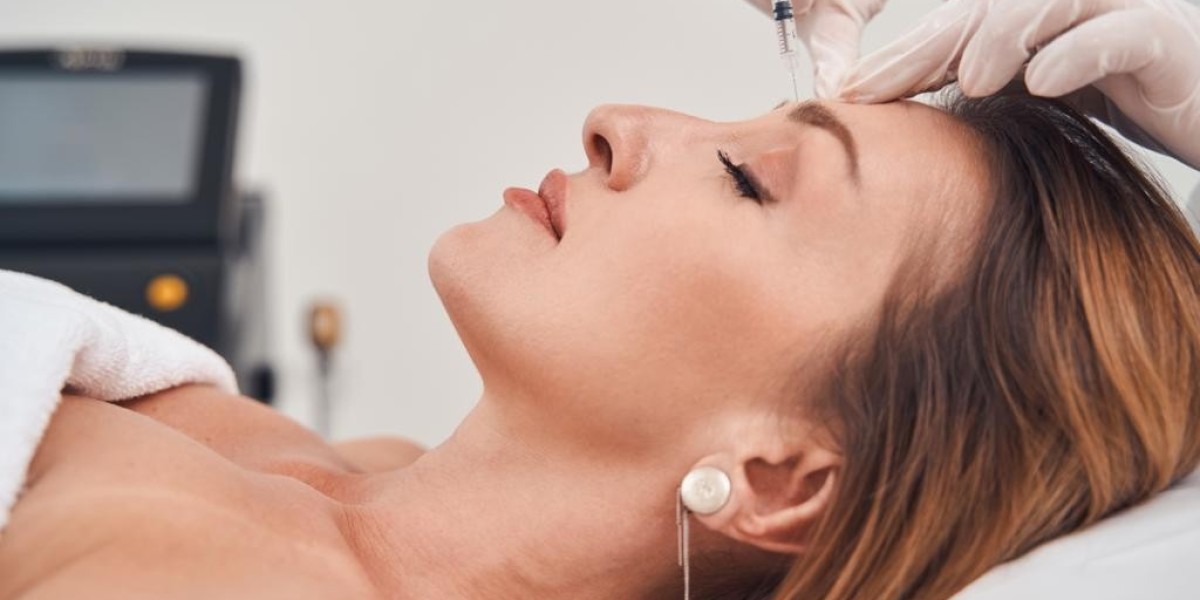In today’s aesthetics-driven world, achieving flawless skin and healthy hair is a priority for many. While topical creams have long dominated the skincare market, a newer, more targeted treatment is gaining popularity—mesotherapy in Islamabad. This non-surgical procedure promises faster, deeper, and longer-lasting results compared to creams applied on the surface.
But how do these two approaches really compare? In this article, we’ll explore the science, effectiveness, and practical considerations of mesotherapy and topical treatments to help you determine which solution best suits your aesthetic goals.
1. Understanding the Basics
What Is Mesotherapy?
Mesotherapy involves injecting a blend of vitamins, enzymes, hormones, and plant extracts into the mesoderm (middle skin layer). It targets a range of concerns like:
Skin aging
Hair loss
Hyperpigmentation
Localized fat
The treatment is performed by professionals using microinjections with minimal discomfort and downtime.
What Are Topical Creams?
Topical creams are formulations applied to the skin surface. They may include ingredients like:
Retinoids
Hyaluronic acid
Vitamin C
Steroids
Herbal extracts
These creams are often used to treat acne, pigmentation, dryness, and wrinkles.
2. Depth of Penetration: Surface vs. Subdermal
The effectiveness of a skincare treatment largely depends on how deep its active ingredients can reach.
Topical creams penetrate only the uppermost layer (epidermis), which limits their effectiveness for deeper concerns like dermal collagen loss or deep pigmentation.
Mesotherapy, on the other hand, delivers nutrients directly into the dermis, bypassing the outer barrier, allowing for deeper rejuvenation.
Winner: Mesotherapy—it provides direct access to the target layer of skin.
3. Customization and Personalization
Topical Creams
Available over-the-counter or by prescription
Generally follow a one-size-fits-all approach
Often take weeks or months to show visible results
Mesotherapy
Custom-tailored based on individual skin/hair assessments
Combines multiple ingredients depending on the concern
Can address multiple issues simultaneously in one session
Winner: Mesotherapy—it offers a personalized treatment plan for optimal results.
4. Treatment Speed and Results
Topical Creams
Require consistent, long-term use
Results may vary depending on skin type, climate, and product formulation
Visible improvements may take 8–12 weeks or more
Mesotherapy
Results often visible within 2–3 sessions
Offers a faster turnaround for concerns like sagging, fine lines, and hair thinning
Maintains results longer with fewer sessions per year
Winner: Mesotherapy—faster, longer-lasting effects.
5. Areas of Application
Topical Creams
Face, neck, and hands are typical areas of application
Limited use on scalp or for body contouring
Often not suitable for deeper skin conditions
Mesotherapy
Used on face, neck, scalp, hands, abdomen, thighs, and more
Effective for both facial rejuvenation and hair regrowth
Also used for cellulite reduction and fat melting
Winner: Mesotherapy—greater versatility in treatment areas.
6. Ingredient Stability and Absorption
Topical Creams
Ingredients may degrade over time when exposed to air or light
Skin barrier often limits absorption
Risk of irritation if used improperly
Mesotherapy
Ingredients are freshly mixed and delivered immediately
Direct injection ensures full absorption into target tissues
Reduced risk of surface-level irritation
Winner: Mesotherapy—superior stability and bioavailability.
7. Side Effects and Safety
Topical Creams
Generally safe for everyday use
May cause allergic reactions, irritation, or dryness
Overuse can lead to skin thinning (e.g., with steroids)
Mesotherapy
May cause mild swelling, bruising, or redness temporarily
Rare side effects if performed by a certified practitioner
Requires professional oversight for safety
Winner: Tie—both have side effects, but safety depends on proper use and expertise.
8. Maintenance and Cost
Topical Creams
Daily use required for maintenance
Low upfront cost but recurring expenses over time
Effectiveness may decrease if the skin builds resistance
Mesotherapy
Typically a set of 4–8 initial sessions followed by maintenance every few months
Higher upfront cost but fewer sessions needed annually
Results can last longer between treatments
Winner: Depends—topical creams are budget-friendly but mesotherapy may be more cost-effective long-term due to lasting results.
9. Scientific Evidence and Efficacy
Topical Creams
Backed by dermatological studies for ingredients like retinoids and niacinamide
Results are generally mild to moderate
Mesotherapy
Supported by clinical evidence for hair regrowth, wrinkle reduction, and skin rejuvenation
Offers targeted action that many creams can’t match
Winner: Mesotherapy—more comprehensive and targeted efficacy.
10. Convenience and Accessibility
Topical Creams
Easily available at pharmacies and online
Simple to apply at home
No appointment necessary
Mesotherapy
Requires booking a session with a dermatologist or aesthetician
Time required for consultation and procedure
Not available as a DIY solution
Winner: Topical Creams—easier for self-care routines and quick fixes.
11. Ideal Candidates
Topical Creams Work Best For:
Mild acne or pigmentation
Early signs of aging
Preventive skincare
Mesotherapy Is Ideal For:
Stubborn pigmentation or melasma
Hair loss or scalp concerns
Mature skin needing deep revitalization
Those seeking faster results with professional care
12. Patient Testimonials from Islamabad
Many residents of Islamabad who have switched from long-term use of creams to mesotherapy report:
Brighter, firmer skin
Decrease in hair fall
Enhanced glow and hydration
Improved self-esteem
Patients also appreciate the custom treatment plans and fast recovery times offered by reputable clinics.
13. The Role of Dermatologists
One major advantage of mesotherapy is professional oversight. Dermatologists in Islamabad often combine mesotherapy with other procedures like microneedling, PRP, or chemical peels for enhanced results.
Topical creams, although helpful, lack this level of professional supervision, which can sometimes lead to misuse or underwhelming outcomes.
14. Environmental Factors in Islamabad
The dry climate, pollution, and high UV exposure in Islamabad make skin more prone to dehydration and aging. Mesotherapy helps combat these issues by delivering moisture and antioxidants directly to deeper skin layers, whereas topical creams may struggle to penetrate through the surface barrier.
15. Hybrid Approaches: Combining Both
In some cases, combining mesotherapy with a high-quality topical routine may yield the best results. After mesotherapy sessions:
Use a gentle moisturizer
Apply sunscreen religiously
Maintain results with serums or night creams
A synergistic approach can enhance longevity and prevent regression.
16. Choosing the Right Clinic in Islamabad
If you’re considering mesotherapy, choose a certified clinic with experienced professionals. Look for:
Transparent consultation processes
Personalized treatment plans
Hygienic equipment and techniques
Before-and-after documentation
Avoid unlicensed setups offering cheap treatments without medical supervision.
17. Addressing Myths and Misconceptions
Myth: Mesotherapy is painful.
Truth: Most patients report only mild discomfort.Myth: Topical creams are just as effective.
Truth: While creams can help, they rarely match mesotherapy’s depth and speed.Myth: Mesotherapy is only for aging skin.
Truth: It’s widely used for prevention, hydration, hair loss, and more.
Conclusion: The Final Verdict
While topical creams offer a convenient and budget-friendly option for daily skincare, they often fall short in delivering lasting, deep-penetrating results. Mesotherapy in Islamabad provides a powerful, personalized alternative that addresses skin and hair concerns at the source, offering faster, longer-lasting improvements.
Ultimately, the choice depends on your needs, budget, and desired outcome. For those looking for real transformation with professional support, mesotherapy stands as the superior option in the world of advanced aesthetics.








